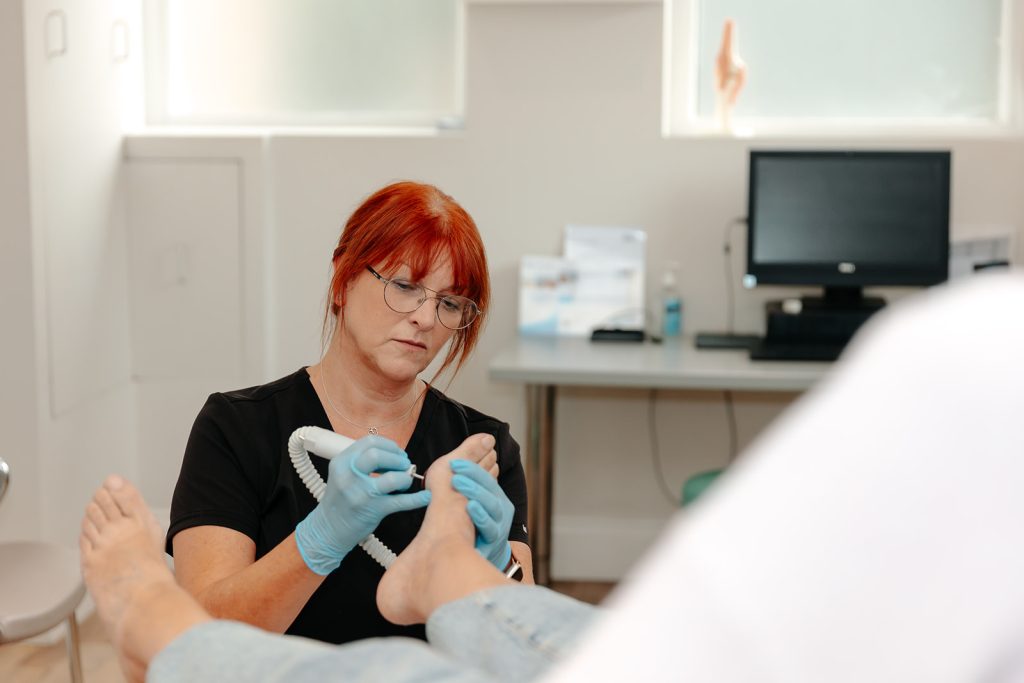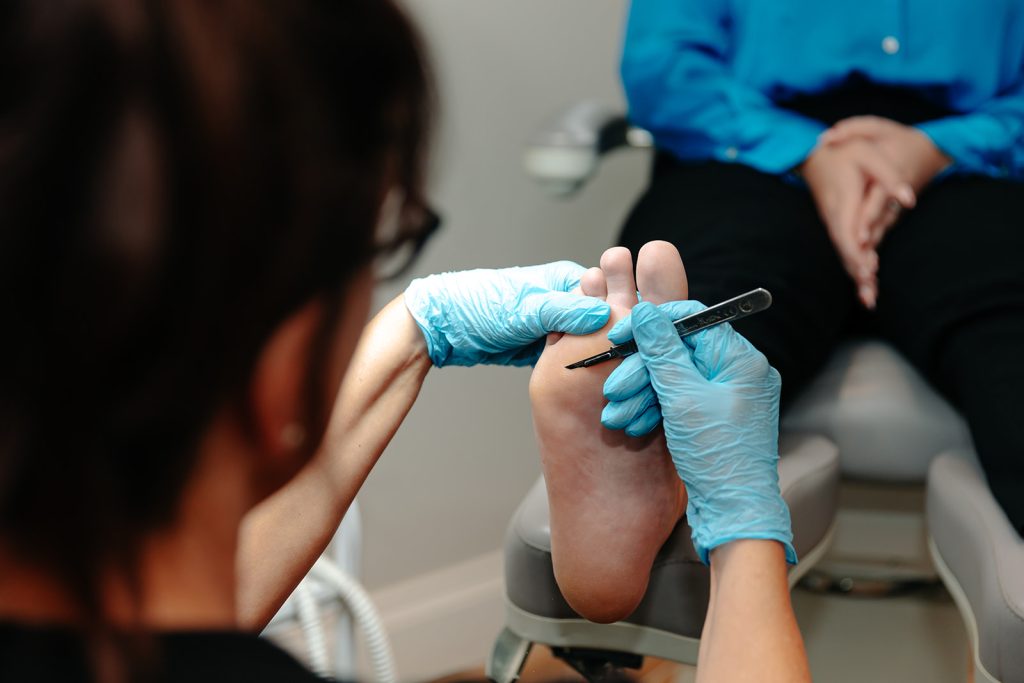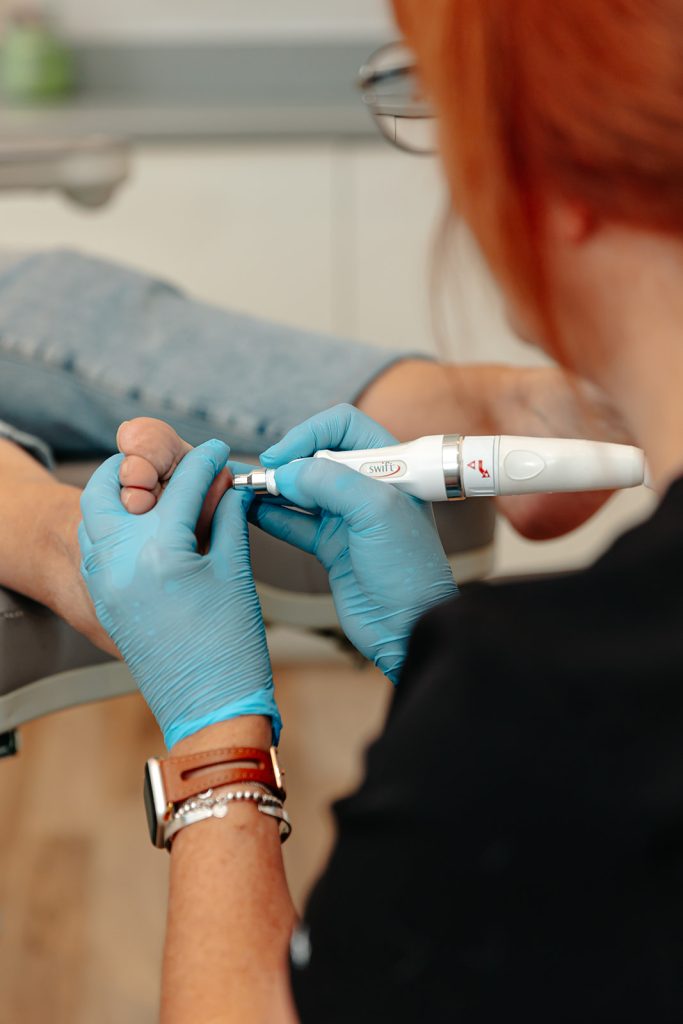
Verruca removal
Struggling with a stubborn foot verruca?
Foot verrucas can be painful, uncomfortable to walk on, and look unsightly. They’re also contagious, which can make you hesitant to walk barefoot whilst others are around.
Without the right care and attention, they’re unlikely to go away.
You may have already searched online for home remedies and purchased every over-the-counter verruca treatment on the shelf. You may have even contacted your GP about your verruca but still had no success.
You shouldn’t have to put up with this, and the good news is, you don’t have to. Our highly trained chiropodists and podiatrists can treat your verruca and get your feet looking and feeling great.
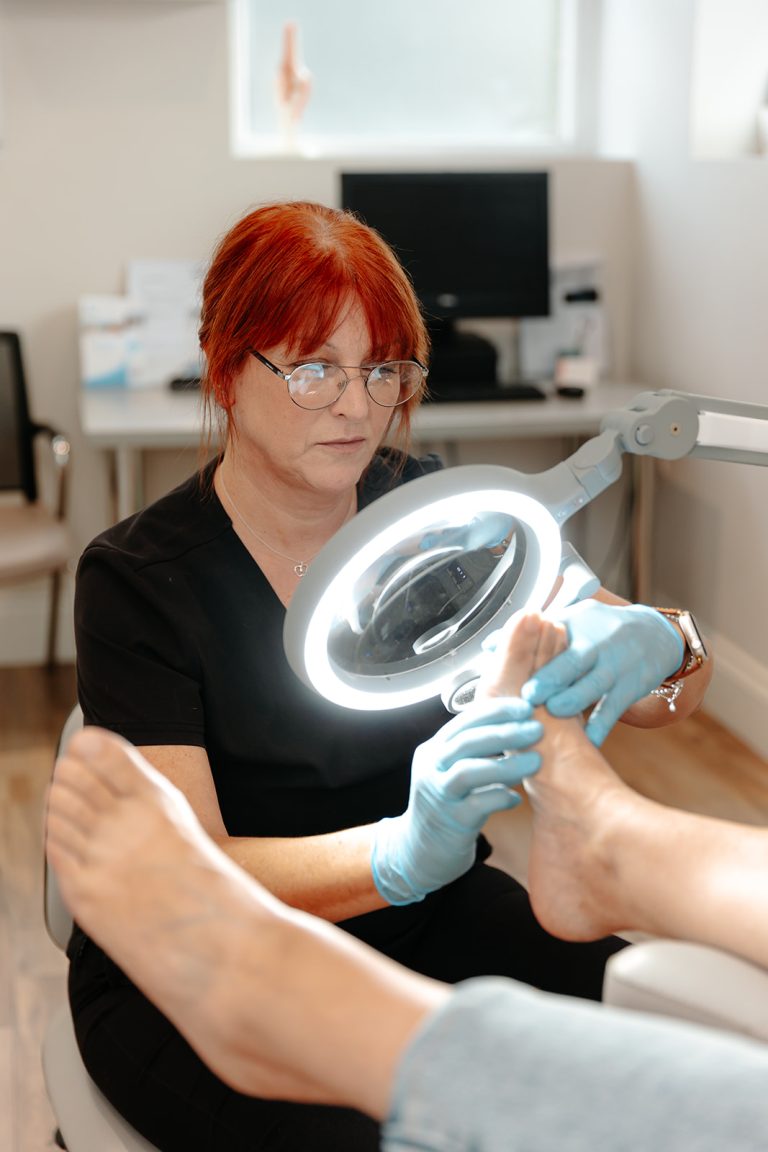
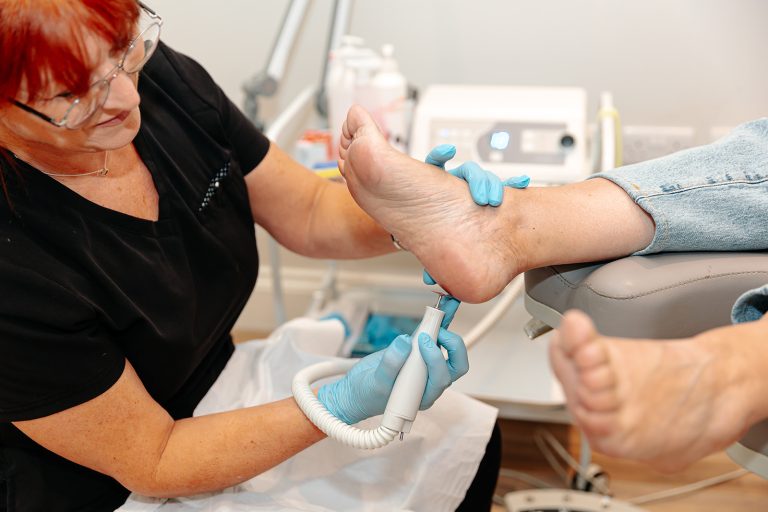
About verrucas
What is a verruca?
Verrucas are plantar warts commonly found on the foot caused by strains of the human papillomavirus infecting the outer layer of the skin. They can appear on any aspect of the foot but usually present on the weight-bearing surfaces.
What causes a verruca?
The human papillomavirus can survive outside of the human body and thrives in a moist, damp environment, which is why it is commonly picked up from swimming pools and communal changing room floors. It can however be contracted from any surface, especially if you have cuts or abrasions on your feet which you may not be aware of. Once the virus is picked up, there is a delay before the verruca become visible whilst the virus multiplies.
What are common symptoms of a verruca?
Initially, verrucae can present as a small whitey pink bump but in the later stages, they often have a rough cauliflower-like appearance with central black dots.
Verrucas can develop as one singular wart of varying sizes or multiple tightly packed individual warts known as mosaic verrucae. If the verruca forms on a weight-bearing surface such as the heel or the ball of the foot, it will usually protrude into the skin, may acquire an overlying spongy callus, and can be painful when walking. If it develops on a non-weight-bearing surface such as the side of a toe, it will protrude outwards and might not cause any pain unless squeezed.
Verrucas before and after treatment
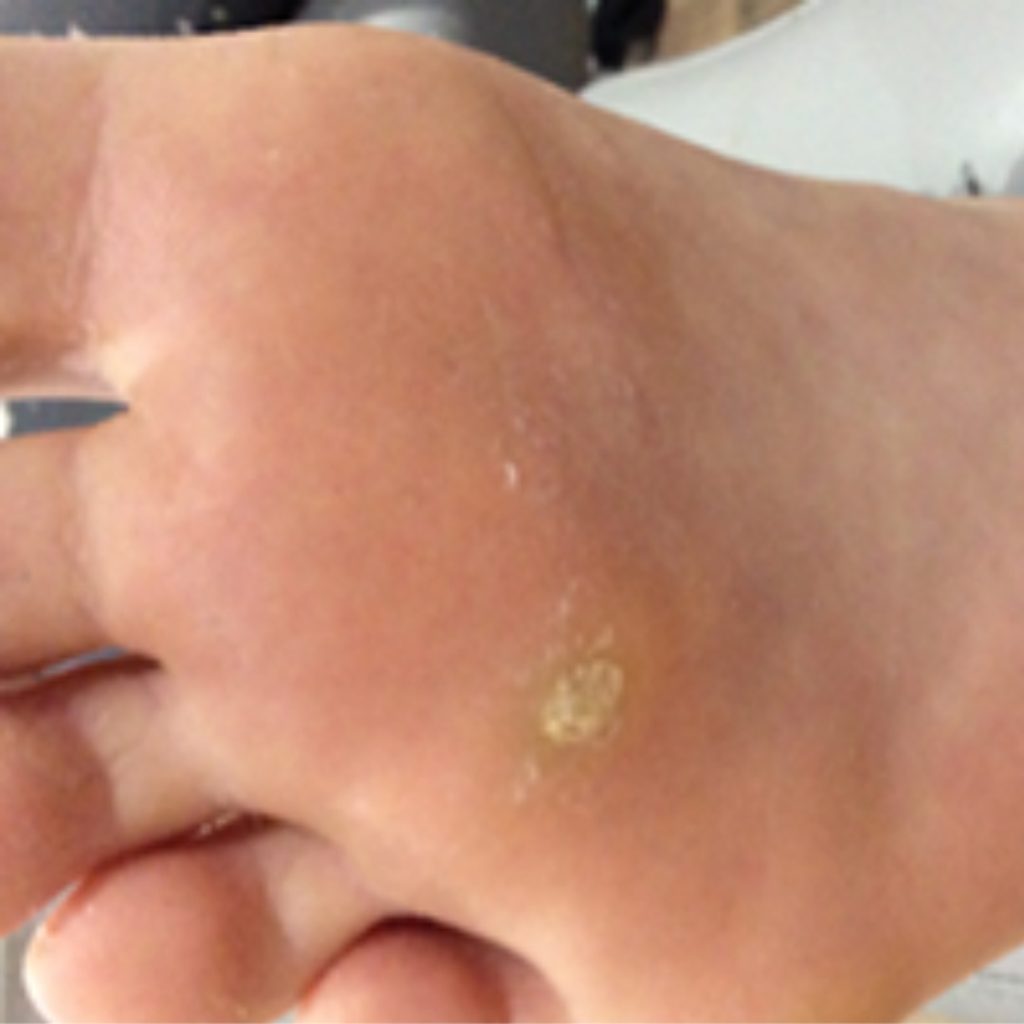
Before
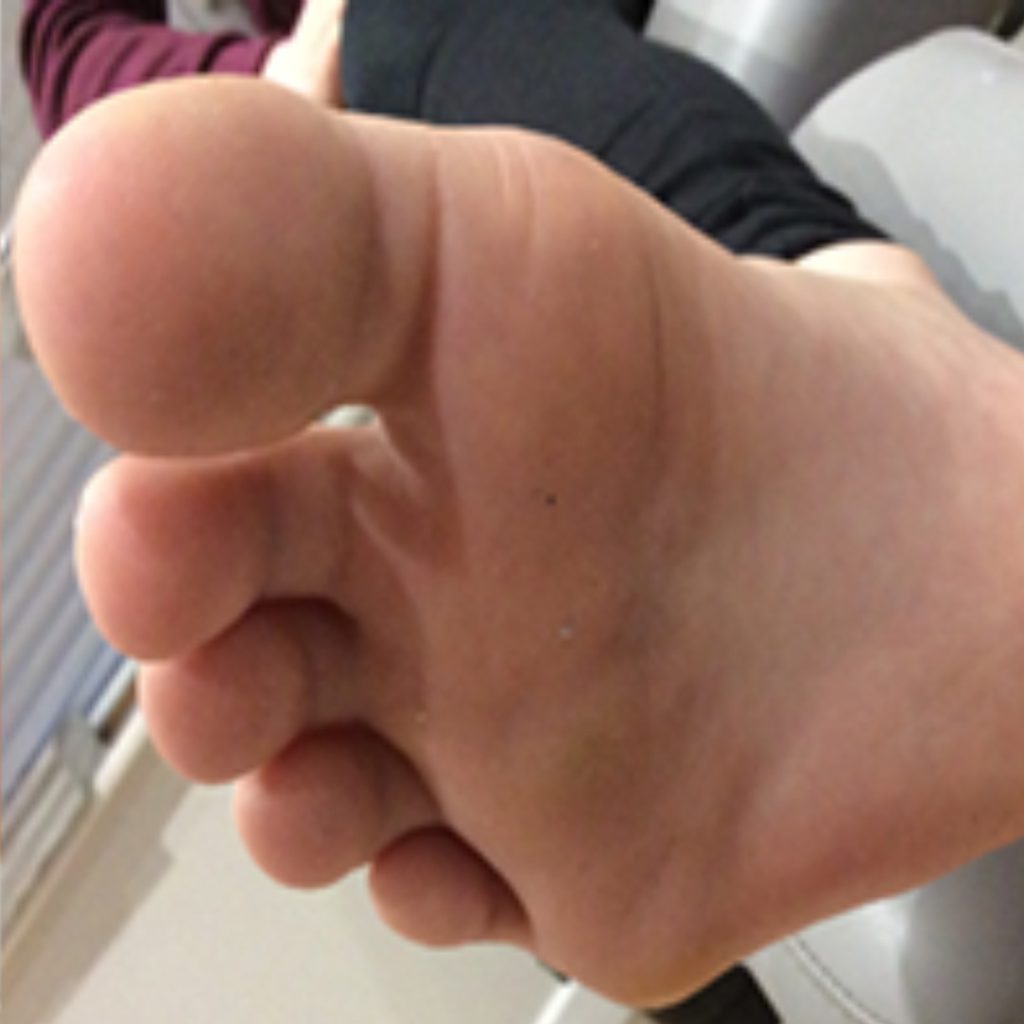
After
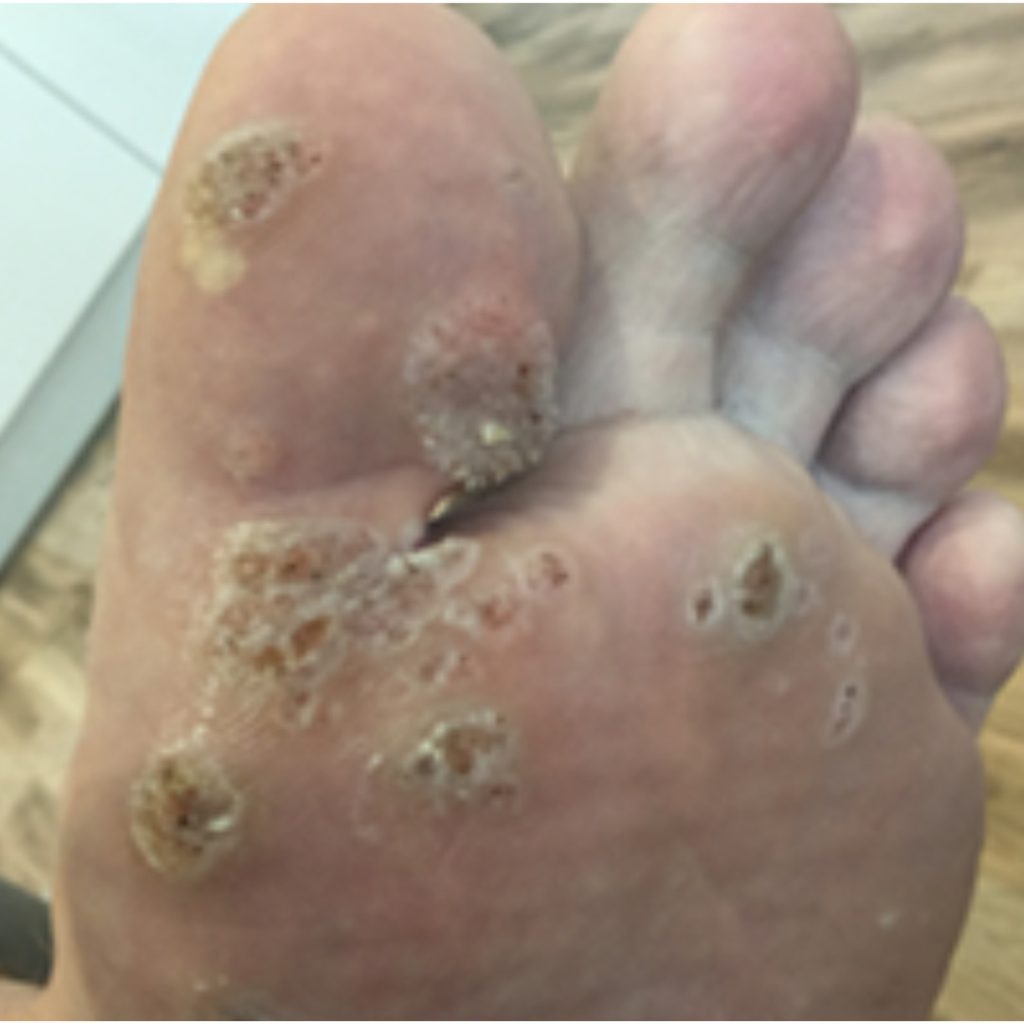
Before
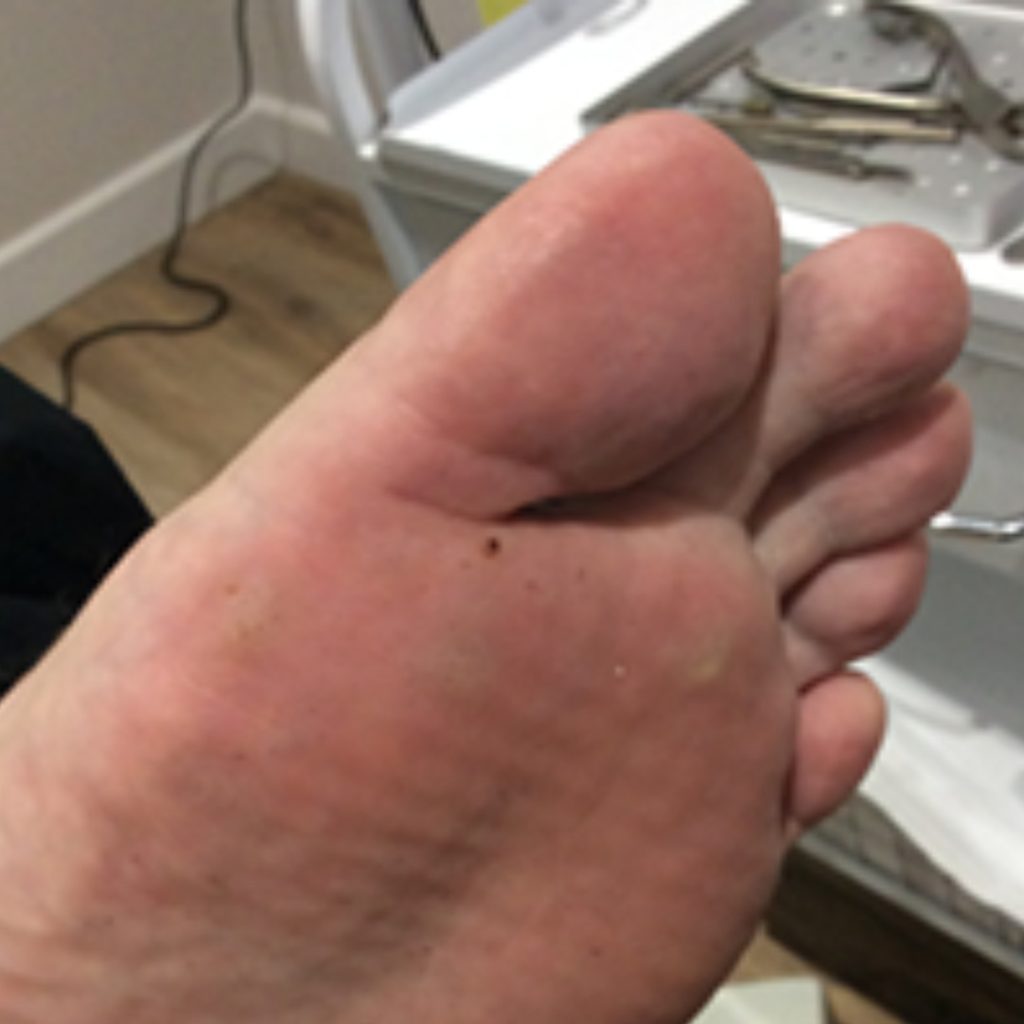
After
Our Clinics

Devizes
Book a podiatrist for verruca removal at our Devizes clinic in Couch Lane.

Frome
Book a podiatrist for verruca removal at our Frome clinic in Wallbridge.
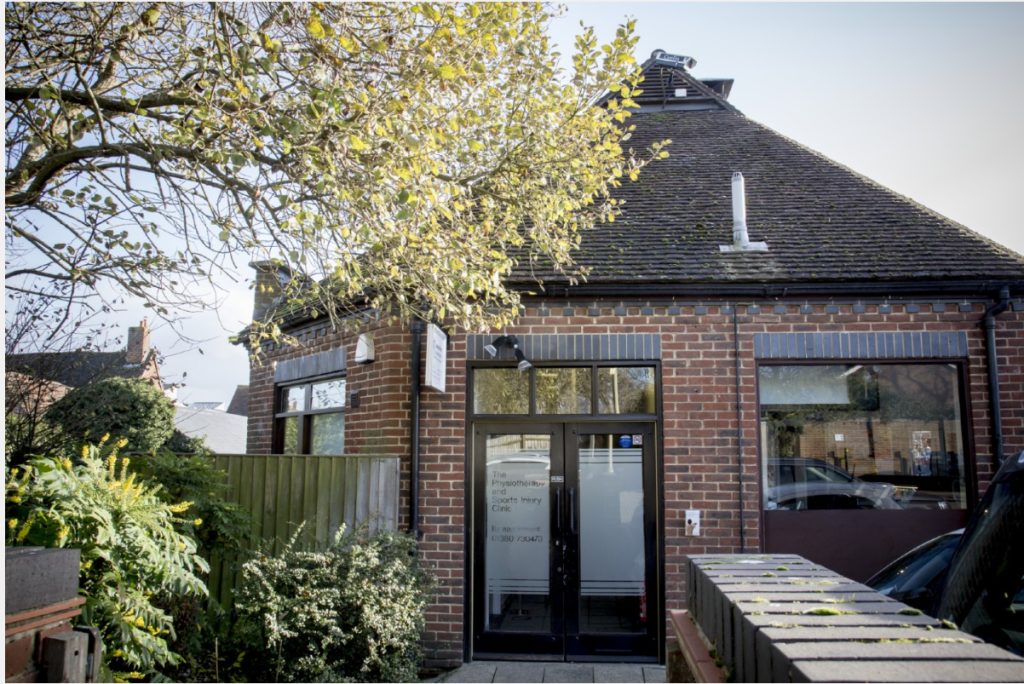
Marlborough
Book a podiatrist for verruca removal at our Marlborough clinic in Hughenden Yard
What to expect from your verruca removal appointment
Understand
Book an initial Podiatry / Chiropody appointment and come in to meet your foot specialist
Learn
Sit down to enjoy a cleansing foot bath where we’ll ask you for any relevant medical history
Diagnose
We’ll carry out a thorough assessment of your verruca to gain an understanding of why and how it developed, we’ll also assess your feet as a whole and treat any other conditions you may have
Treat
Your Podiatrist / Chiropodist will then recommend the best course of treatment for your verruca which will likely be one of the below options
Support
You’ll then be given advice on how to take care of your feet moving forward to ensure that your verruca doesn’t come back
What it’s like to be a patient at Hatt Clinic

Swift microwave treatment for verrucas
Swift uses microwave energy which is delivered through a probe that is applied to the skin to treat the affected tissue. Multiple verrucas can be treated in a single session.
Key features:
- Success rate approximately 80%
- Involves the application of microwave therapy to the verrucae
- Non-invasive treatment
- No need to rest after treatment and no post-treatment dressings required
- Requires up to 4 treatment sessions
Your treatment package includes:
- Up to 4 treatment sessions over an 12 week period
- Follow up review 12 weeks after last treatment session
- Further follow up review 12 weeks later
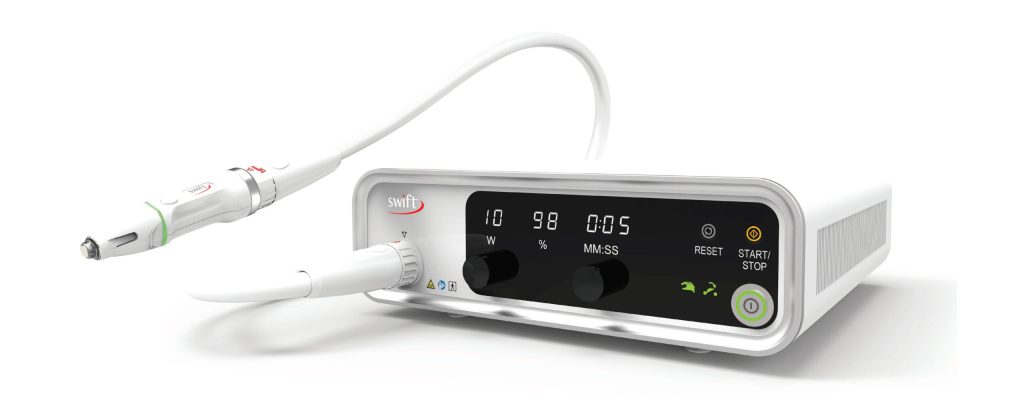
I tried various methods of removing my stubborn verruca. I almost gave up trying but I’m glad I didn’t as the Swift treatment really worked.
See all testimonialsSilver nitrate verruca treatment
Key features:
- Success rate approximately 45%
- Involves a monthly application of Avoca caustic applicator 95% w/w cutaneous stick in clinic and fortnight home application of Avoca caustic pencil 95% cutaneous stick for periods of 2 weeks
- Non-painful and low complication rate
- Requires up to 4 sessions
Your treatment package includes:
- Up to 4 monthly treatment sessions of in-clinic application of Avoca caustic applicator 95% w/w cutaneous stick
- 4 pens of Avoca caustic pencil 95% cutaneous stick
- Follow up 1 month after last treatment session
- Zinc dioxide tape to keep the verruca covered between sessions
- Zinc supplements
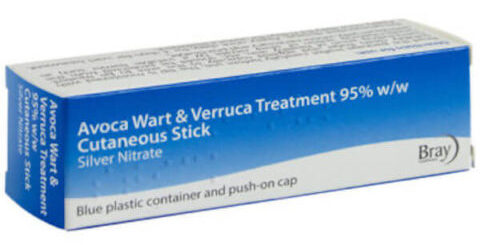
I had a bad verruca and it was treated with care and attention. I can now walk knowing I’m not going to be in pain.
See all testimonials
